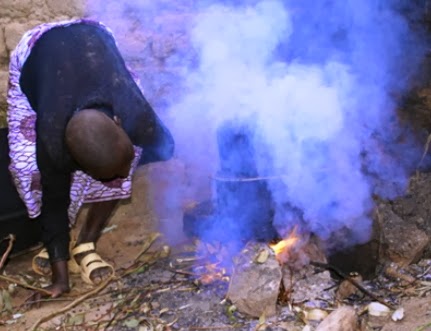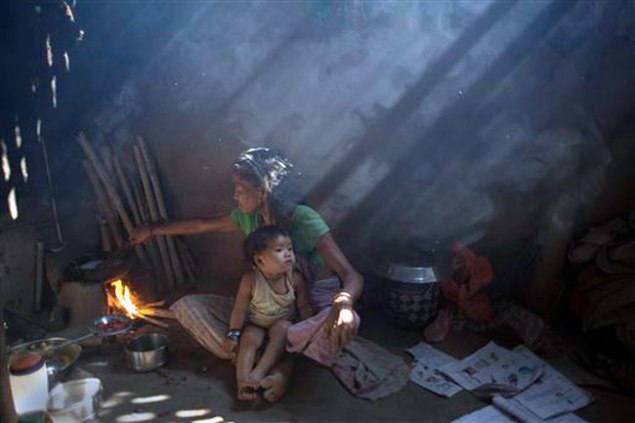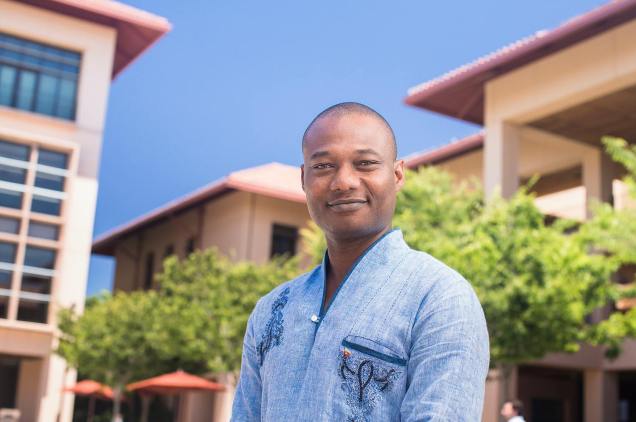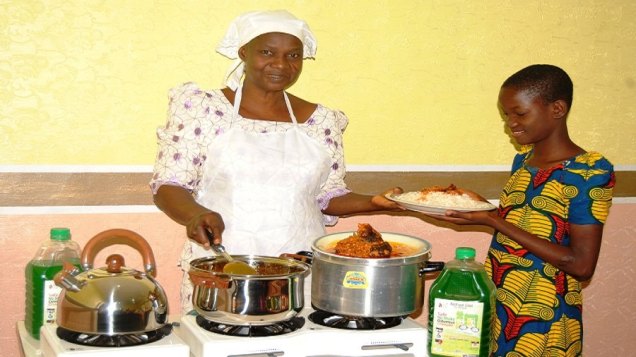
The night Fatimah died, it rained endlessly through the heavy darkness that had swallowed the thatch, dingy hut she had lived in for the most part of her single mother life.
Her sullen eyes – scarlet and dilated- shut in with a hot, almost steamy tear, as she let out her final cough which also would be her last breath.
Fatimah had battled for seven years, myocardial ischemia – a heart disease she contracted from her many years of inhaling smoke from cooking with firewood as a village food vendor simply to survive and ensure her three children live and acquire some education the type she was not afforded.
This story is one of the several million stories of women all over sub-Saharan Africa, whose lives have either been prematurely snapped off or continue to be severely threatened by the harmful consequences of unknowingly smoking by cooking with charcoal, wood, crop waste and dung.
Across many if not all villages, towns and bigger communities in sub-Saharan Africa, women, with children sometimes strapped to their backs, and girls, rely majorly on dirty fuel for cooking, walking long distances in most cases to fetch wood and their plights remain palpable, endlessly unabated.

Many, like Fatimah, are holed up in poverty and undignifying human conditions with very little or no support, hence, can hardly afford safe cooking alternatives. In most cases, these endangered women and girls are uneducated and as a result, are unable to make better and informed choices.
A World Health Organisation survey on the global burden of disease reveals that nearly 600,000 Africans die annually and millions more suffer from chronic illnesses caused by air pollution from inefficient and dangerous traditional cooking fuels and stoves.
This tragic and avoidable first-order public health crisis disproportionately harms women and children, placing them in an unpleasant position of the most “endangered species”.
In sub-Saharan Africa, reliance on inefficient and dangerous traditional cooking is a large and growing problem. With more than 700 million Africans using solid fuels such as wood, charcoal, dung and crop waste for their primary cooking needs, the penetration of clean cooking technologies in this population is alarmingly negligible.
Beyond the wide range of negative environmental and climate change effects of dirty fuel cooking, are its unimaginable health implications.
The release of particulate matter, carbon monoxide and other harmful products of incomplete combustion from solid fuel cooking is strongly linked to acute lower respiratory infections, chronic obstructive pulmonary disease, lung cancer, ischemic heart disease, cerebrovascular diseases, cataract and low birth weights.
Sufficient evidence also exist that asthma, tuberculosis, paediatric sleep disorders, depression, bacterial meningitis, depression, are closely associated with cooking with coal, firewood, dung and crop waste, including widespread minor ailments from smoke inhalation such as eye irritation and headaches.
So, like Fatimah, sub-Saharan Africa houses an overwhelming population of women and children “smokers”! Smokers, not by intention, but by poverty which leaves them with no choice than to cook with dirty fuel.

A NEW DAWN!
Femi Oye is a Nigerian Social Entreprenuer breaking barriers to adoption and affordability of clean cook stoves, and nothing best captures his interest like his passion to end the ugly incident of women and children smokers in Africa.
An unusual passion that has now assumed a monumental scale and attracted global attention, Femi’s resilience is understandable.

He had lost his grandmother , Mama , with whom he grew up and had given him the privilege of some decent education, to a lung disease which like Fatimah, she battled but could not conquer.
Mama was a “smoker”! She had lived the most part of her life inhaling toxic emissions from cooking with kerosene and coal, all in an effort to support Femi’s and his few siblings’ education.
With no money for proper diagnosis and treatment, Mama , like a losing sprinter, dropped the baton at the foot of a protracted lung disease. And that would be the defining moment for Femi.
In four years and more now, Femi has exceedingly committed his resources, heart and innovative drive into building West Africa’s biggest clean energy investment company – Green Energy and Biofuels – manufacturing clean cook stoves, as well as biofuel gel made from water hyacinth – an invasive plant- and sawdust, emitting zero carbon and cooking faster than kerosene, coal, dung and crop waste combined!
Particularly amazing is the fact that Femi’s biofuel gel for the clean cook stove innovation is provided at the lowest and most affordable prices, consequently generating a remarkable shift from the use of dirty fuels to the adoption of clean cook stove by many households across Sub-Saharan Africa.

Till date, over 200,000 households have been salvaged from the lethal jaws of dirty fuels and are also provided with a unique platform to generate substantial income to move themselves out of poverty through a green business network developed by Femi.
Looking forward, the clean and improved cooking sector is poised for solid growth. With inputs of innovators and social entrepreneurs like Femi, the evolving demand and supply environments and historical uptake trends suggest that, even under conservative assumptions, the penetration of clean cook stove will rise to 36% (80 million households) in 2020.
Yet, major obstacles like the willingness to adopt and limited consumer exposure to new technologies and low awareness of their benefits cause limited demand.
It therefore means that consumer education and awareness building, marketing solutions that enhance end-user trust as well as innovative financing of the sector must then be treated as matters of great priority.
(C) AYOMIDE ATITEBI
________________________________________________________________
*With acknowledgement of facts and figures disclosed in “Clean and Improved Cooking in Sub-Saharan Africa” (Second Edition), Africa Clean Cooking Energy Solutions Initiative.
* Images sourced from Google
